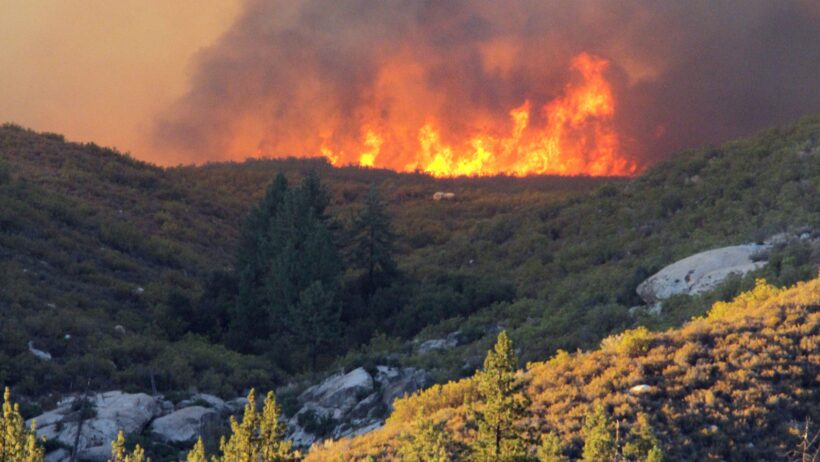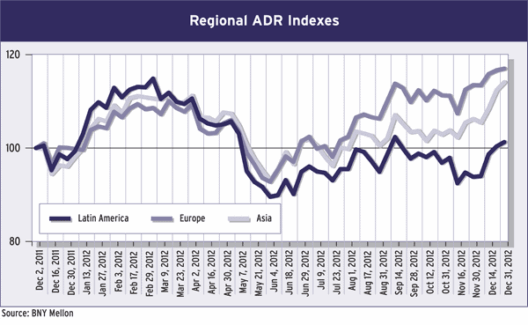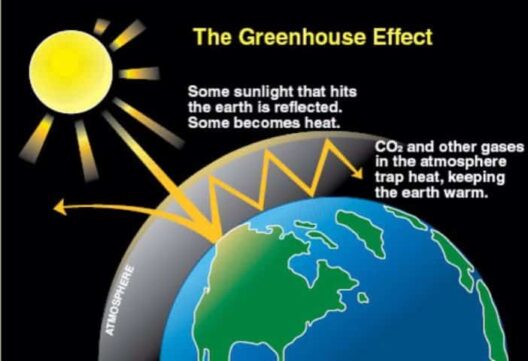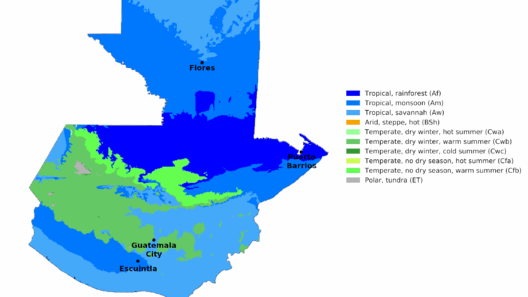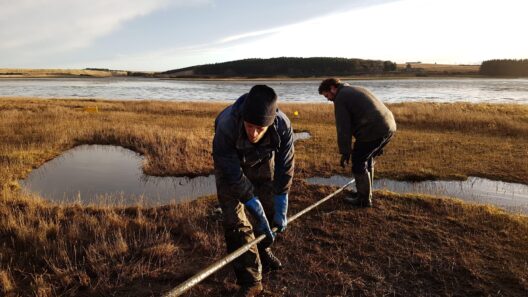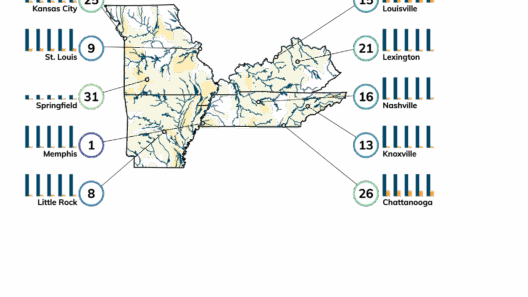The effects of climate change are profound and far-reaching, affecting not just the environment, but also economies, societies, and individual lives. As global temperatures continue to rise, we observe an array of impacts, some of which are immediate, while others manifest over decades or even centuries. Herein lies the core of understanding climate change: it transcends the confines of simple environmental degradation and infiltrates the very fabric of our daily existence.
One of the most visible consequences of climate change is the increase in extreme weather events. Hurricanes, floods, droughts, and wildfires have become more frequent and severe. The intensity of these events can be attributed to warming oceans that fuel storms and a changing atmosphere that alters weather patterns. For instance, warmer air holds more moisture, resulting in heavier rainfall during storms. The ramifications are twofold: loss of property and, tragically, loss of life. Communities are often left in tatters, struggling to rebuild while facing insurmountable challenges.
This frequency of extreme weather conditions exacerbates another critical issue: food security. Agricultural systems, which are heavily reliant on predictable weather patterns, are increasingly disrupted. Droughts can decimate crop yields, while flooding can erode fertile land and contaminate water supplies. The World Bank estimates that by 2030, climate change could push over 100 million people into extreme poverty, largely due to its impact on agriculture. This confluence of events poses questions about our capacity to feed an ever-growing global population and highlights the need for adaptive farming practices.
Another alarming phenomenon tied to climate change is the acceleration of ice melt in polar regions. The Arctic sea ice and glaciers worldwide are diminishing at an unprecedented rate, contributing to rising sea levels. Coastal cities and low-lying areas are increasingly vulnerable to submersion or severe flooding. In fact, some island nations face existential threats, adding dire urgency to climate discourse. Beyond aesthetics, the melting of ice impacts global oceanic currents and ecosystems, potentially triggering widespread ecological shifts.
Additionally, human health is inextricably linked to the climate crisis. Rising temperatures facilitate the spread of vector-borne diseases, such as malaria and dengue fever, as warmer climates expand the habitats of the vectors that transmit these diseases. The heat itself poses direct risks, leading to heat-related illnesses and increased mortality rates during particularly hot spells. Vulnerable populations, including the elderly and those with preexisting conditions, are disproportionately affected, underscoring an equity crisis intertwined with climate change.
As we recognize the myriad effects of climate change on our environment and society, it is vital to explore the psychological impacts as well. Eco-anxiety, a term that has emerged in response to environmental degradation and the uncertainty of the future, is manifesting in increasing numbers of individuals. Mental health professionals report rising levels of stress and anxiety concerning climate change, particularly among younger generations. The fear of an uncertain future, combined with the feeling of helplessness in addressing such a colossal issue, creates a fertile ground for distress.
The socio-economic implications are yet another layer to this complex issue. Vulnerable communities often bear the brunt of climate impacts, yet they possess the least resilience to recover from events like floods or heatwaves. These communities frequently lack adequate infrastructure, resources, and social safety nets to withstand climatic shocks. Consequently, we see an exacerbation of social disparities, as wealthier areas can mobilize resources more swiftly to confront these challenges. This disparity raises pressing questions about justice and equity in climate adaptation and mitigation efforts.
Conversely, the narrative around climate change is not solely one of doom and gloom. It also presents myriad opportunities for innovation and transformation. The urgent need to tackle climate change has birthed a burgeoning green economy characterized by advancements in renewable energy, sustainable agriculture, and climate-resilient infrastructure. The shift towards solar, wind, and other renewable sources of energy has the potential to not only reduce carbon emissions but also create millions of jobs. The transition presents an opportunity for a more sustainable and equitable economic model that prioritizes environmental stewardship.
On an individual level, awareness and education play pivotal roles in fostering a climate-conscious society. Small, concerted efforts—whether reducing waste, conserving energy, or advocating for policy change—can collectively engender significant impacts. Each individual’s choices matter, contributing to a cultural shift towards sustainability. Social movements and grassroots initiatives are powerful catalysts for change, proving that collective action can hold governments and corporations accountable.
It is imperative, therefore, to adopt a multifaceted approach to combat climate change. This will necessitate collaboration across all sectors of society—government, business, and civil society. Policies need to reflect the urgency of the situation, integrating scientific knowledge with actionable strategies. Relationships with natural resources must be redefined, respecting the balance necessary for future generations. This comprehensive understanding of climate change’s effects will not only inform our responses but also engage individuals in a dialogue about how to mitigate and adapt to these changes cohesively.
Ultimately, the effects of climate change offer a stark reminder of our interconnectedness with the planet and with each other. The future rests in our collective hands. Acknowledging the challenges we face—while remaining resolute in our pursuit of solutions—can shape a resilient world that values sustainability, equity, and the health of our planet. The path forward is fraught with complexity, but with purpose and determination, humanity can rise to meet the challenge, ensuring a habitable world for generations to come.



